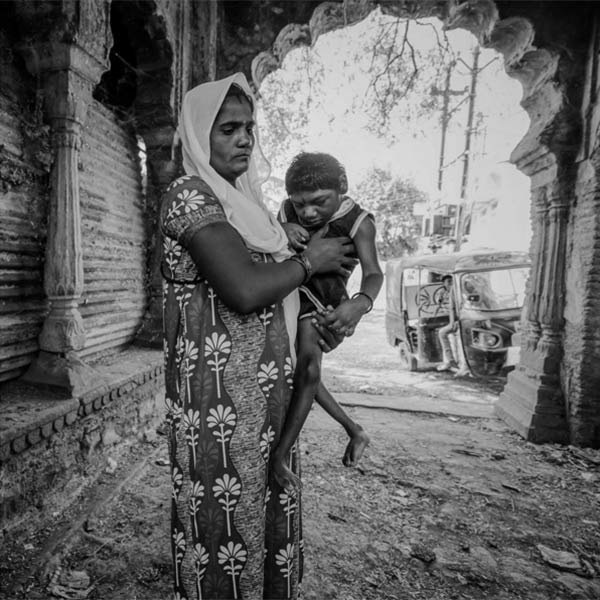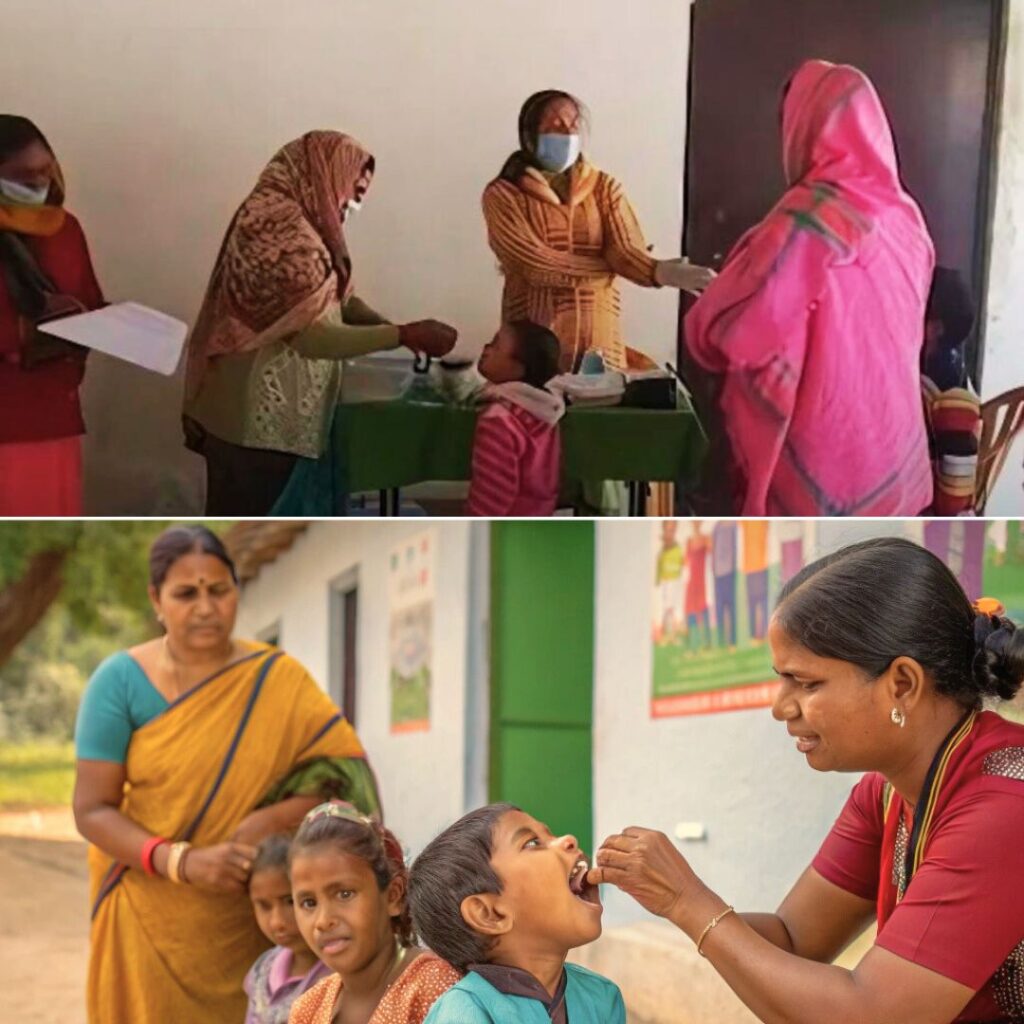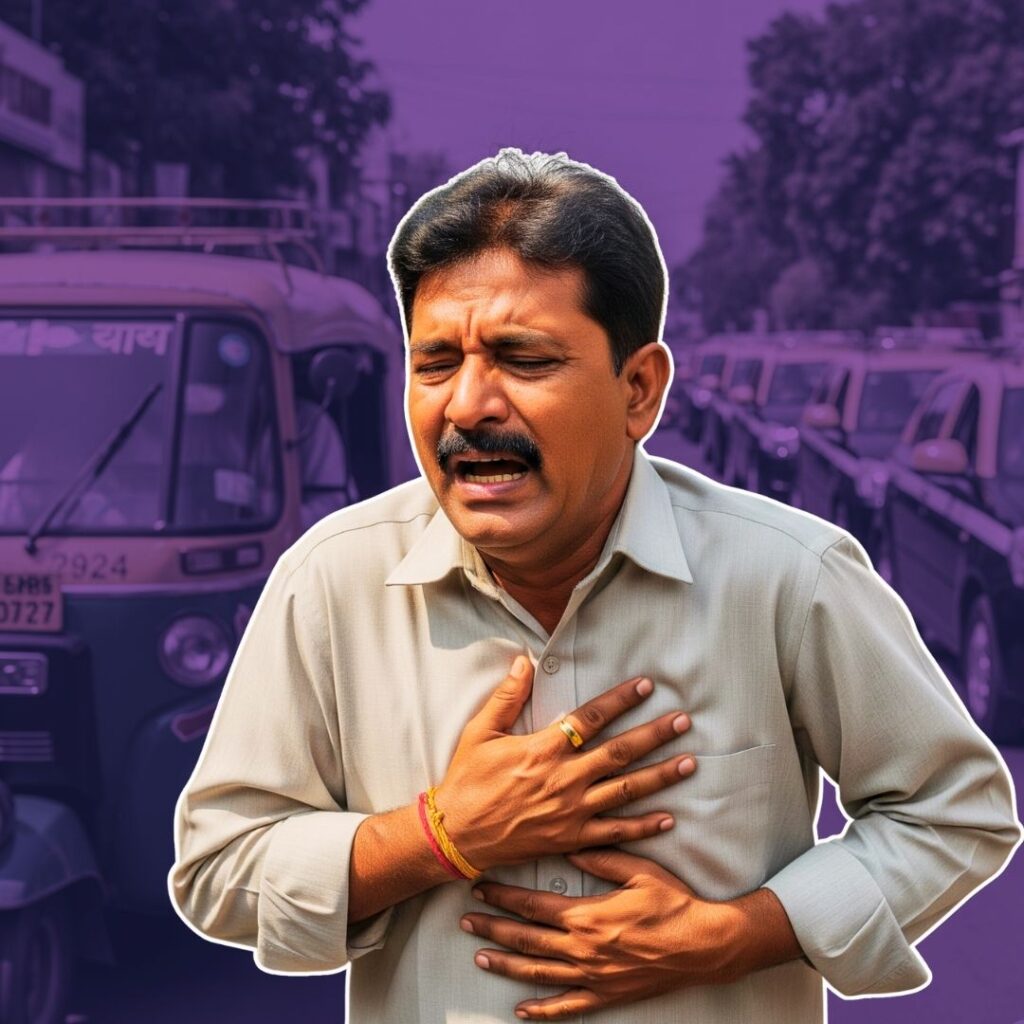#BhopalGasTragedy #32nd Anniversary The world’s worst industrial disaster is happening today and everyone is silent.Thirty-two years ago, on this day, a tragedy took place, deadly plumes of poisonous Methyl Isocyanate gas—about 500 times more toxic than cyanide– leaked from the Union Carbide factory and killed more than 8,000 immediately. But Carbide’s poisons continued to kill – over 22,000 people have succumbed to the effects of the gas disaster in the last 32 years. More than half a million continue to live with lingering health problems like cancer, respiratory illnesses, developmental disabilities, birth disabilities, cancer and reproductive disorders. The toxic contamination of underground water and soil in and around the abandoned factory site is one
of the persistent testimonies of corporate crime and impunity.
International studies have found mercury, lead and organochlorines in the breast milk of women living near the plant. Dow Chemicals, the current owner of Union Carbide, refuses to accept the disaster-related liabilities. Demonstrating blatant disregard for human suffering and struggle, the company chooses to arm-twist Indian government to close the Bhopal chapter forever — and promising more investment in return. In the last three decades, there has been little relief or justice for the survivors. Do we learn from such tragedy, the answer is no. We wait for another tragedy to happen.
Today, we appeal to our community members to keep Bhopal in their thoughts. If you happen to be unaware of the issue, read about it and start the dialogue because those who don’t remember the past are condemned to repeat it.
Here is a glimpse of what this disaster has brought into lives of people living in Bhopal
 Pictured here in the Dwarker Nagar neighborhood of Bhopal is Vineeta Kumar and her disabled son, Abhay. Abhay was born to parents contaminated by a carcinogenic and mutagenic water supply caused by the vast #chemical #waste ponds left when the Union Carbide #pesticide plant was #abandoned 32 years years ago.
Pictured here in the Dwarker Nagar neighborhood of Bhopal is Vineeta Kumar and her disabled son, Abhay. Abhay was born to parents contaminated by a carcinogenic and mutagenic water supply caused by the vast #chemical #waste ponds left when the Union Carbide #pesticide plant was #abandoned 32 years years ago.
 Shahnaz and her 15-year-old son Ateeq at home in Karond in the outskirts of Bhopal. Ateeq suffers from excruciating pain every time he moves and is unable to walk, talk or feed himself. The family lives in one of the most affected areas, where contaminated groundwater has affected the lives of thousands. Photo by Giles Clarke/Getty Reportage for Bhopal Medical Appeal
Shahnaz and her 15-year-old son Ateeq at home in Karond in the outskirts of Bhopal. Ateeq suffers from excruciating pain every time he moves and is unable to walk, talk or feed himself. The family lives in one of the most affected areas, where contaminated groundwater has affected the lives of thousands. Photo by Giles Clarke/Getty Reportage for Bhopal Medical Appeal
 Water buffalo drink from a pond in the shadows of abandoned Union Carbide plant seen in the background. The land surrounding the former pesticide factory is ground-zero for contaminated soil and water.
Water buffalo drink from a pond in the shadows of abandoned Union Carbide plant seen in the background. The land surrounding the former pesticide factory is ground-zero for contaminated soil and water.
December 2nd marks the 32nd anniversary of the 1984 Union Carbide gas tragedy that killed up to 10,000 of the citizens of Bhopal within 72 hours and, has gone on to claim, in total, over 25,000 lives to date.
The original site and the vast chemical waste ponds nearby were never cleared up and remains, as referred to by @greenpeace, one of the world’s ‘toxic hotspots’. Thousands of #families have, for decades, been using water contaminated with toxic chemicals as their primary supply leading to serious illnesses, including cancers, and a spate of birth defects in their children.
 Sunita Sahu sitting at home with her son, Devank, aged 8, who suffers from severe deformities and cerebral palsy. December 2 marks the 32nd anniversary of the 1984 Bhopal gas disaster that killed up to 10,000 people in Bhopal within 72 hours and has gone on to claim, in total, over 25,000 lives to date. Photo by Giles Clarke/Getty Reportage for Bhopal Medical Appeal
Sunita Sahu sitting at home with her son, Devank, aged 8, who suffers from severe deformities and cerebral palsy. December 2 marks the 32nd anniversary of the 1984 Bhopal gas disaster that killed up to 10,000 people in Bhopal within 72 hours and has gone on to claim, in total, over 25,000 lives to date. Photo by Giles Clarke/Getty Reportage for Bhopal Medical Appeal
 A mother holds her badly-deformed son in her arms as life goes on in a multi-family home in central Bhopal.
A mother holds her badly-deformed son in her arms as life goes on in a multi-family home in central Bhopal.
This year marks the 32nd anniversary of the 1984 Union Carbide gas tragedy that killed up to 10,000 of the citizens of Bhopal within 72 hours and, has gone on to claim, in total, over 25,000 lives to date.
The original site of the toxic pesticide plant was never cleared up and remains, as referred to by @greenpeace, one of the world’s ‘toxic hotspots’. Thousands of #families have, for decades, been using water contaminated with toxic chemicals as their primary supply leading to serious illnesses, including cancers, and a spate of birth defects in their children.
 Pictured here is Pratap Singh, aged 20, at home in the Kainchi Chola neighborhood just a mile from the former Union Carbide pesticide plant. Pratap seemed to enjoy being photographed today – he played with the camera as we made pictures.
Pictured here is Pratap Singh, aged 20, at home in the Kainchi Chola neighborhood just a mile from the former Union Carbide pesticide plant. Pratap seemed to enjoy being photographed today – he played with the camera as we made pictures.
My name is Giles Clarke and glad to be Instagram hosting here for the next week

Shahnaz and her 15year old son Ateeq at home in Karond in the outskirts of Bhopal.
Ateeq suffers from excruciating pain every time he moves and is unable to walk, talk or feed himself. The family live in one of the most affected areas where carcinogenic groundwater has destroyed the lives of thousands and will continue to do so for decades to come. Lying on the floor off their house, in the JP Nagar neighborhood of the city, is 13 year old Amir being tended by his mother Rachanna.
Lying on the floor off their house, in the JP Nagar neighborhood of the city, is 13 year old Amir being tended by his mother Rachanna.
Amir is one of 750 children who are in constant treatment at the Chingari Trust Rehabilitation Clinic – which in turn is funded by the Bhopal Medical Appeal. The #clinic was founded by 2004 Goldman Environmental Prize winners Rashida Bee and Champa Dev- two women who survived the initial Union Carbide tragedy in 1984 and still lead the fight for #justice in Bhopal today.
 From 2 to 3 December 1984, about 24 metric tonnes of methyl isocyanate (MIC), a highly volatile and deadly gas, escaped from the Union Carbide pesticide factory in Bhopal. About half a million people were exposed to hazardous levels of toxins. Many suffered debilitating illnesses or were disabled for life. To this day, Union Carbide has refused to disclose critical details about the composition of the gas and its effect on people – information vital for providing effective medical treatment. Photo by Giles Clarke/Getty Reportage for Bhopal Medical Appeal
From 2 to 3 December 1984, about 24 metric tonnes of methyl isocyanate (MIC), a highly volatile and deadly gas, escaped from the Union Carbide pesticide factory in Bhopal. About half a million people were exposed to hazardous levels of toxins. Many suffered debilitating illnesses or were disabled for life. To this day, Union Carbide has refused to disclose critical details about the composition of the gas and its effect on people – information vital for providing effective medical treatment. Photo by Giles Clarke/Getty Reportage for Bhopal Medical Appeal
 In another blighted family home where the disability of the eldest son, Altamasha is a full time job for mother of three, Aneesa.
In another blighted family home where the disability of the eldest son, Altamasha is a full time job for mother of three, Aneesa.
There are thousands of families in Bhopal who are suffering from the terrible effects of the toxic water that has genetically poisoned children all over the city.
 Later, evidence would emerge showing that Union Carbide – the corporation at the heart of the incident – was aware of safety problems at the Bhopal plant several years before the 1984 disaster. Despite this, it kept storing huge quantities of highly toxic MIC without following proper procedures. It also failed to set up an emergency plan to warn local communities about leaks, even though it had such a plan in place at a similar plant in West Virginia, USA. Photo by Giles Clarke/Getty Reportage for Bhopal Medical Appeal
Later, evidence would emerge showing that Union Carbide – the corporation at the heart of the incident – was aware of safety problems at the Bhopal plant several years before the 1984 disaster. Despite this, it kept storing huge quantities of highly toxic MIC without following proper procedures. It also failed to set up an emergency plan to warn local communities about leaks, even though it had such a plan in place at a similar plant in West Virginia, USA. Photo by Giles Clarke/Getty Reportage for Bhopal Medical Appeal
 The original site of the Union Carbide pesticide plant was never cleared up and remains, as referred to by @greenpeace, one of the worlds ‘toxic hotspots’. Dow chemical bought the assets AND liability of Union Carbide in 1999 but ignoring this site completely.
The original site of the Union Carbide pesticide plant was never cleared up and remains, as referred to by @greenpeace, one of the worlds ‘toxic hotspots’. Dow chemical bought the assets AND liability of Union Carbide in 1999 but ignoring this site completely.
 This year marks the 32nd anniversary of the 1984 Union Carbide gas tragedy that killed up to 10,000 of the citizens of Bhopal within 72 hours and, has gone on to claim, in total, over 25,000 lives to date.
This year marks the 32nd anniversary of the 1984 Union Carbide gas tragedy that killed up to 10,000 of the citizens of Bhopal within 72 hours and, has gone on to claim, in total, over 25,000 lives to date.
The original site of the toxic pesticide plant was never cleared up and remains, as referred to by @greenpeace, one of the world’s ‘toxic hotspots’. Thousands of families have, for decades, been using water contaminated with toxic chemicals as their primary supply leading to serious illnesses, including cancers, and a spate of birth defects in their children.
 When Warren Anderson who was the Chairman and CEO of the Union Carbide Corporation came to Bhopal on 7 December 1984, he was arrested on arrival. A few hours later, he was released on condition that he return to face charges of culpable homicide (not amounting to murder) in an Indian court. He never returned, and died in September 2014, a fugitive to the end. Photo by Giles Clarke/Getty Reportage for Bhopal Medical Appeal
When Warren Anderson who was the Chairman and CEO of the Union Carbide Corporation came to Bhopal on 7 December 1984, he was arrested on arrival. A few hours later, he was released on condition that he return to face charges of culpable homicide (not amounting to murder) in an Indian court. He never returned, and died in September 2014, a fugitive to the end. Photo by Giles Clarke/Getty Reportage for Bhopal Medical Appeal
 A mother tends to her very ill child in the Chingari Trust clinic in Bhopal. Nov26 2015. The clinic and it’s a very dedicated staff look after over 500 genetically challenged children in and around the Bhopal area.
A mother tends to her very ill child in the Chingari Trust clinic in Bhopal. Nov26 2015. The clinic and it’s a very dedicated staff look after over 500 genetically challenged children in and around the Bhopal area.

 Chingari Trust. Candlelight vigil to mark thirty years since the start of the Bhopal Disaster.
Chingari Trust. Candlelight vigil to mark thirty years since the start of the Bhopal Disaster.













